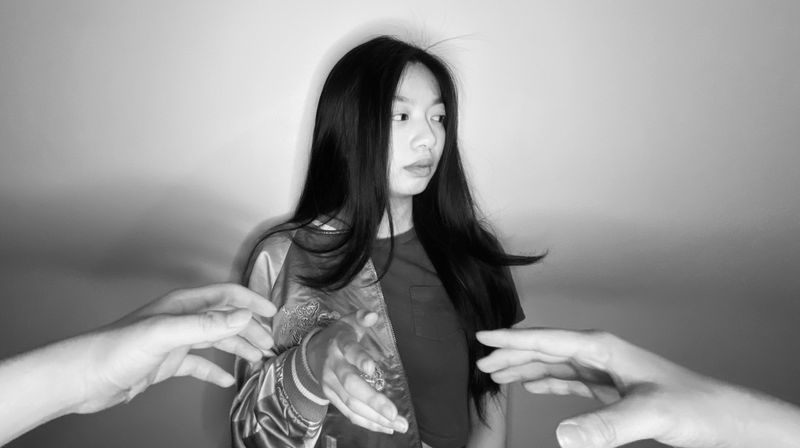We Are America
Living in Two Worlds
By Stella

North Quincy High School, Massachusetts
As a twelve-year-old in a brand-new school, my first thought was to try to make as many friends as possible. I wanted to be accepted. I branched out to meet people from other elementary schools. At the beginning of middle school, I primarily befriended those that were not Asian. Conversing with those friends, I would realize how contrasting their lifestyles were compared to mine. Those friends would eat out often. I rarely ever ate out and only did during family gatherings. In addition, I also remember being confused when my friends asked me, “What language do you speak at home? You speak mandarin, right?” I was so puzzled at the idea that just because I’m Asian and Chinese, they assumed I spoke Mandarin.
As sixth grade flew by, I drifted from my previous friends and started hanging out with Asian friends. For the most part, our lifestyles were similar. However, one time a friend pointed out the clothes I was wearing. I saw no issue with my clothes as they were bought from the mall. I was then called the term often used by these Asian friend groups, “whitewashed.” Another time a friend was asking if I knew a certain social networking app and when I answered that I did, I was once again attacked by the cruel term and was told, “She’s not Asian enough.” The term was thrown around so often, it started to take a toll on me. I struggled with my cultural identity where I was stuck between being too Asian and not Asian enough. Over time, I changed my lifestyle numerous times to try to fit in.
I never spoke up about this struggle as other peers did not seem to share them. One day, my teacher presented a Ted Talk that forever shifted my perspective on my identity. The video “I Am Not Your Asian Stereotype” jumped out as it was the first time I have ever heard another Asian American speak out about having similar conflicts. In the video, Canwen Xu claims, “But as I became more Americanized, I also began to lose bits and pieces of myself, parts of me that I can never get back, and no matter how much I tried to pretend that I was the same as my American classmates, I wasn’t” (Xu 5:31). Xu was right, her words were how I felt. I lost parts of myself just as she had. At the end of the talk, Xu claims, “But most of all, I am proud of who I am. A little bit American, a little bit Chinese, and a whole lot of both” (Xu 9:20). The final words opened my eyes, I no longer had to fight these battles and live in these two worlds that society and I have positioned myself in. I did not need to conform to whatever norm society had put into my head. Indeed, my lifestyle was never the same as either friend group. However, what I do know is that being American doesn’t mean living in a particular way but rather to be proud of my unique identity.
© Stella. All rights reserved. If you are interested in quoting this story, contact the national team and we can put you in touch with the author’s teacher.